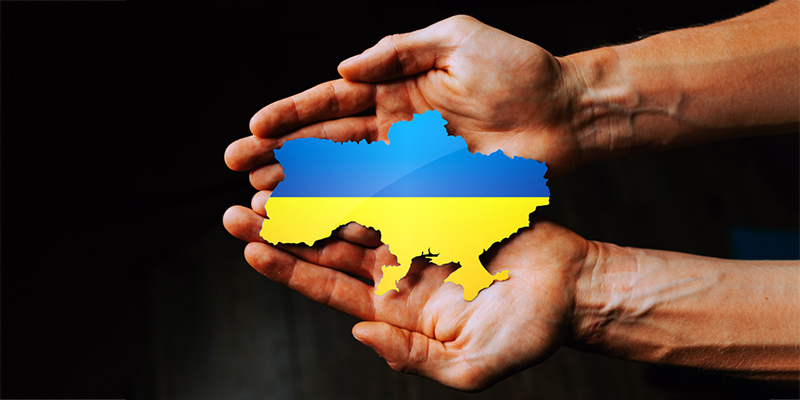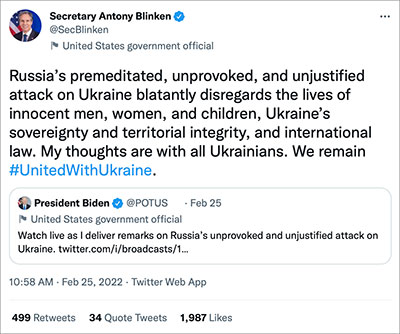Experts shed light on the ongoing conflict in Ukraine
 EXPERT ANALYSIS
EXPERT ANALYSIS> How to help Ukrainian Australians
With all the information coming out of Ukraine and in what remains a constantly evolving situation, it is challenging to get a grasp on the implications of the current conflict.

UniSA has a range of experts who’ve been able to provide valuable insights into what’s happening and what it all means.
One of the key questions is whether there is any point to international law if, as it seems, that law is powerless to control the conduct of states.
UniSA law lecturer Juliette McIntyre, in a piece written with colleagues from the NSW and Deakin universities, says there is no question Russia has breached the rules of international law.
“Ukraine has a right to territorial integrity and political independence,” she writes in The Conversation with her co-authors. “Russian ‘recognition’ of the independence of Donetsk and Luhansk does not change this, nor do any historical claims to Ukrainian territory on the part of Russia.
“Russia has also committed an act of aggression against Ukraine. Aggression is an old concept in international law, predating the creation of the UN.”
The piece goes on to explain what the United Nations can do but also the limitations the UN faces because of the structure and membership of the UN Security Council. It also explains the other responses available under international law.
Read the full story in The Conversation.
How to help Ukrainian Australians
Although the conflict in Ukraine might seem far from Australian shores, Australia is home to more than 45,000 people with Ukrainian ancestry, who are bearing witness to heartbreaking scenes and ongoing uncertainty about the safety of family and loved ones.
UniSA Chair in Mental Health Nursing Professor Nicholas Procter says Ukrainian Australians are experiencing a powerful emotional pull to Ukraine with friends, family and history there.
“Previous research into the impact of global catastrophic events on the diaspora – scattered communities with shared cultural links – tells us much about the push-pull impact on local people of global events,” he says in a piece for The Conversation.
“Diaspora migrant groups should not be seen as isolated from their country of origin. Rather, they are subject to global influences over their personal and social life, their health and wellbeing.”
There are a range of ways other Australians can support them during this time, including by helping people feel that their emotions have been heard, understood and are accepted. Read his detailed advice in The Conversation.
Other Stories
- Weighing up the cost of dieting
- Hoverfly brains mapped to detect the sound of distant drones
- COVID pandemic 2nd anniversary: 3 things we got wrong, and 3 things to watch out for
- Experts shed light on the ongoing conflict in Ukraine
- From the Vice Chancellor
- Achievements and Announcements
- More than $500k in grants to enable UniSA students to travel to Indo-Pacific region
- Stillbirth and chronic disease link identified in world first discovery
- UniSA researcher launches space startup
- Forget handheld virtual reality controllers: a smile, frown or clench will suffice
- In Pictures: International Women's Day and UniSA Campus Fair




